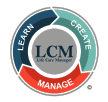
Written by: Shanna Huber, CEO/founder of My Junna Software
In any business, pricing is one of the most important things to get right. If a small
business underprices their services, they may not be able to maintain profits to stay in
business, or be perceived as not valuable. If a business overprices their services, their target audience may not be able to afford their services, or they will attract such a small subset of individuals they may find it hard to have continuous work. Pricing is not the only thing to think about when setting up a business. Other items to address are: what time increments should I bill? (one minute, six minute, fifteen minutes), should I require a retainer? How often should I invoice? All great questions to address to keep your business running smooth, mitigate risk and run a successful care management practice.

Different geographical areas have a different threshold for what you can charge for a
service. From my experience, hourly charge for care managers ranges from $110 to $250 per hour. Care managers should conduct market research in their geographic area. Call local care management or other consulting businesses and compare what they charge for services. A care manager can charge more or less for different types of services. Remember you can How to Cost YourServices always adjust as you get feedback, but don’t undervalue your services. Care managers have unique expertise that can save individuals and families precious time and money.

Typically, care managers charge by one-, six-, or fifteen-minute increments. In my opinion, one-minute increments are difficult to track and can cause the client to question time increments for texts or other shorter time tasks. For instance, a text to read and respond may only physically take less than one minute but does not account for the time the care manager is interrupted by current thought to pay attention and think about how to respond. And, the
interaction must be documented and then invoiced which also adds time. All of this built into the text may frustrate customers versus if six or fifteen minutes are baked into the minimum billing time increments. I personally bill in fifteen-minute increments and have been in business over eight years and only had one customer question the fifteen-minute increment billing. Care managers should consider requiring a retainer prior to beginning work to ensure the family has the funds and are willing to pay for services. Options for retainers are full retainer estimating the time that is needed divided by the hourly rate or providing a service by a flat fee and requesting full payment up front. Another option is to require a small retainer up front and then working off the retainer and billing monthly thereafter. To mitigate risk of nonpayment, I would advise against not collecting a retainer at all. Processes and standard operating procedures should be put in place to run a smooth business and make it easier to scale and grow in the future. Regular invoicing that is easy to remember and easy for customers to remember is key. One recommendation would be invoicing monthly on the first of the month so you do not lose track of who was invoiced and who has yet to be invoiced. Another option is to invoice every other week on a particular day, for example, every other Friday. Or you may invoice on the first and fifteenth of each month. More frequent invoicing helps with cash flow but can also be difficult for your customers to keep up with and may cause frustration on their end. It is always best to start somewhere and update as you grow and receive feedback from customers.

The Life Care Management Institute offers a great class on this very same topic! It is a 45 minute presentation with a Q&A session afterwards.
Click Here to Learn More!









Leave a Reply